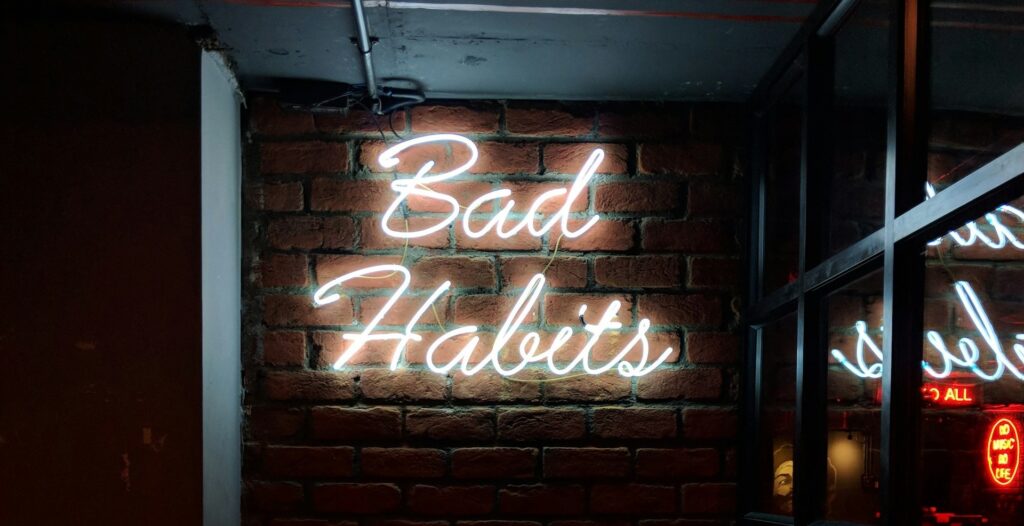Habits have a substantial impact on your life. They happen automatically throughout the day, allowing you to move around and make decisions without much thought. They also allow you to have new ideas, learn new information, daydream, etc.
But whether these habits are working for you or against you, they all have formed neural pathways or paths of stored information in the brain that helped you learn these behaviors. Habits are not just behaviors you do throughout the day; they define and influence who you’ve become.
Understanding the purpose of a habit you’ve had for years is the first step to replacing it. However, it’s a process that can take time and effort. Replacing a habit with a new one is a gradual and habit-changing process. During this process, you uncover the beliefs and role of this present habit in your daily life.
This understanding allows you to start a new way of thinking and programming your thoughts to choose new habits that will become part of your belief system where you’ll no longer need to return to the old one. The more this new habit becomes part of the new you, the better chance for permanent results.
For example, you’ve been trying to lose fifteen pounds for months or over a year. You’ve attempted to eat smaller meals and less processed foods and take a Pilates class a few days a week, but those behaviors only last for a few days, and then you stop. Whatever pounds you lost slowly return, leaving you confused and frustrated trying to figure out why you returned to the same behaviors that keep you stuck.
When your current approach isn’t helping you achieve your goals, the habit-changing method can help you make a permanent change. It’s not therapy. It’s a method where you are guided to step back and reflect to let go of old beliefs you may not even be aware you had. Once you discover the underlying reason causing you to repeat behaviors that are not working, you can understand your desires, wants, and motivations that cause you to repeat certain behaviors.
Now, you’re ready to take empowered actions towards your goals without the back-and-forth of internal conflict between applying new changes and old habits.
The habit-changing method is a journey of self-exploration. It can be enjoyable if you’re ready, to be honest with yourself and trust that you’re working towards becoming more aware of tuning into your inner voice, which knows more than anyone what’s best for you. Accountability plays an important role in guiding you during this process of self-discovery and self-exploration, helping you refocus and redirect back to what you want to achieve.
The more you begin to accept and practice these new beliefs and behaviors that reflect a new understanding of yourself, the more significant the change in creating lasting results will be. This approach is far more meaningful and effective than other methods, which lead to a quick fix that eventually fades.
Takeaway: If you’re tired of constantly starting over to get what you want because your actions are not working, it’s time for some “rewiring.” Allow yourself to explore new ways to achieve a better you by leaving old habits behind and creating new ones that serve a purpose and reflect the person you want to be.
